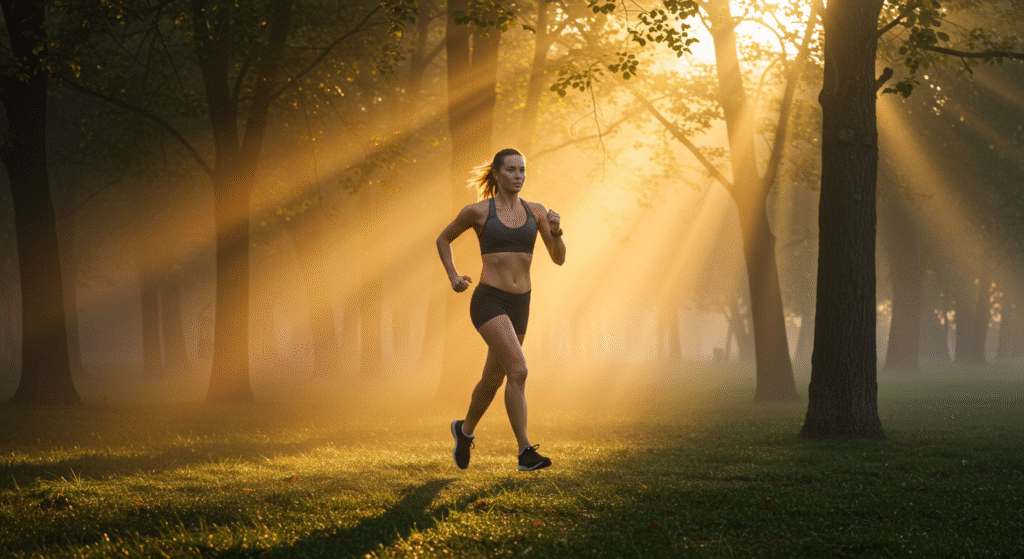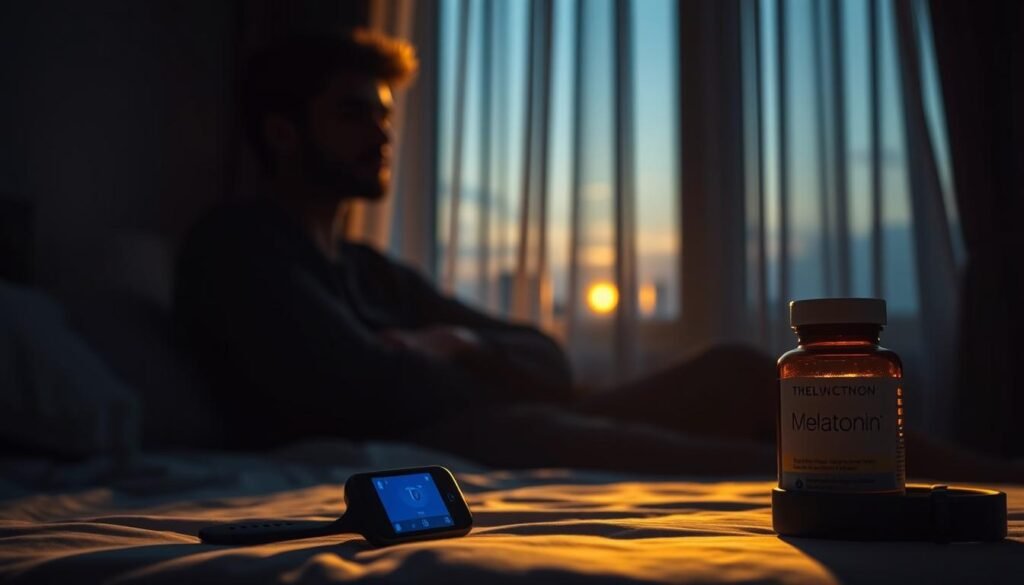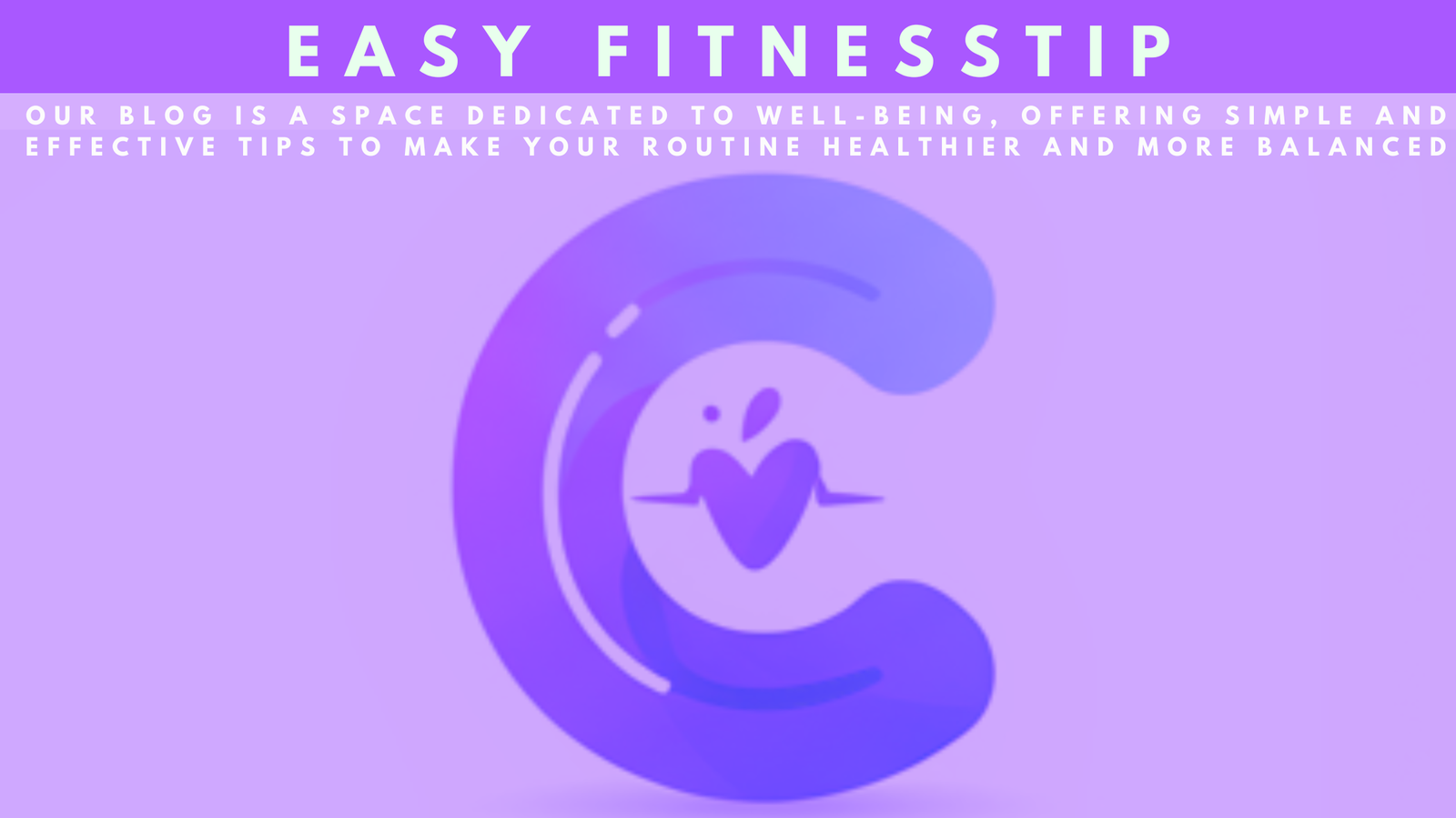
Knowing when to exercise can greatly improve your sleep. This guide explores the best times to work out for better sleep. It looks at advice from the Sleep Foundation and Harvard Health.
It’s often suggested to avoid hard workouts two hours before bed. But, we also see how some light evening exercise can help sleep.
We’ll look at different times of day and how they affect sleep. From morning workouts to evening exercises, we’ll share tips. These tips help you match your workouts to your body’s natural rhythm.
Key Takeaways
- Morning workouts can offer significant sleep benefits.
- Avoid strenuous activity within two hours of bedtime to prevent sleep delays.
- Moderate evening exercise may improve sleep in some individuals.
- Understanding your chronotype can help optimize your workout schedule.
- Different times of day can offer unique advantages for exercise and sleep quality.
Introduction to Optimal Workout Timing for Sleep
Knowing the optimal workout timing for sleep is key for staying healthy and sleeping well. Exercise boosts sleep quality, but when you work out matters a lot. Studies from Harvard Health and the Sleep Foundation shed light on how exercise timing on circadian rhythm affects us.
The Importance of Sleep and Exercise
Sleep and exercise are vital for a healthy life. Sleep keeps our minds sharp and our bodies healthy. Exercise helps with weight, heart health, and muscles.
Doing both together can be even better. But, it’s important to match workouts with our body’s natural cycles for the best results.
How Workout Timing Affects Sleep Quality
When you work out can really change how well you sleep. Exercising too late can mess with your sleep because it raises your heart rate and body temperature. But, exercising at the right time can make you sleep better and longer.
Experts say matching your workouts with your circadian rhythm is smart. Some prefer morning, others afternoon or evening. Finding what works for you can improve both your exercise timing and sleep.
The Science Behind Circadian Rhythms and Exercise
Our bodies have a natural 24-hour cycle called the circadian rhythm. It controls sleep, hormone levels, and how we metabolize food. Changes in our lifestyle or environment can affect how we feel and perform.
Understanding Circadian Rhythms
A group of cells in the brain, called the suprachiasmatic nucleus (SCN), drives our circadian rhythms. The SCN reacts to light, affecting our alertness and energy. When our rhythms are in sync, we feel our best.
Exercise and Its Impact on the Body’s Clock
Working out can either sync or mess with our circadian rhythms, based on when we do it. Morning workouts can help set our internal clock right, making us feel more awake. But, if we exercise at the wrong time, it can throw off our rhythm, making it hard to sleep well.
Knowing how exercise affects our internal clock helps us plan better workouts. A well-timed workout schedule boosts our health and sleep quality, leading to a better life.
Morning Workouts: Pros and Cons for Sleep
Doing morning cardio can have both good and bad sides. It can help your sleep, but you need to think about it carefully.
Benefits of Morning Exercise
Morning exercise can make you feel more awake and happy all day. It also boosts your metabolism, helping with weight and energy. The Mayo Clinic says it sets a good start for the day.
Potential Drawbacks of Early Workouts
But, intense morning workouts might mess with your sleep. The American College of Sports Medicine says to balance hard workouts with rest. Too much in the morning can make you tired and affect your sleep at night.
Finding the right balance is key. Morning workouts can improve your health and sleep if done right.
Afternoon Exercise and Its Influence on Sleep Quality
Doing exercise in the afternoon can really change how well you sleep. Scientists study how our bodies change after we move.
The Science of Afternoon Workouts
Our body’s temperature is highest in the afternoon. This boosts muscle strength and endurance. It also makes enzymes work better, helping us perform at our best.
Working out then fits with our natural body clock. So, the afternoon is a great time to get active.
Benefits of Exercising in the Afternoon
Many people sleep better after afternoon exercise. It lowers stress and helps our body clock stay steady. Plus, we have more energy later in the day.

Drawbacks of Afternoon Workouts
There are downsides too. If you exercise too close to bedtime, it can keep you awake. People who get easily excited might want to work out earlier.
| Timing | Benefit | Drawback |
|---|---|---|
| 1 PM – 4 PM | Optimizes peak performance | Possible sleep disruption if too late |
| 4 PM – 6 PM | Enhances muscle function | May increase alertness near bedtime |
Evening Exercise Benefits
Working out in the evening has many benefits. It can help you relax and prepare for sleep better. Studies from the Sleep Foundation show that evening workouts can lead to better sleep.
Evening exercise can also boost your evening workout heart rate. High-intensity workouts increase your heart rate. This helps your heart stay healthy and reduces stress. As your body cools down after working out, you’ll feel more relaxed.
Adding pre-bed workout alternatives like yoga or stretching can also help. These activities calm your mind and body. They make it easier to fall asleep and prepare your body for rest.
In summary, pre-bed workout alternatives and evening routines have many benefits. They promote physical and mental relaxation. This approach can make your evenings healthier and more restful, leading to better sleep.
| Benefits of Evening Workouts | Impact on Sleep |
|---|---|
| Improved Heart Rate | Promotes Cardiovascular Health |
| Long-lasting Relaxation | Eases the Transition to Sleep |
| Mental Tranquility | Reduces Sleep Latency |
High-Intensity Interval Training (HIIT) and Sleep: Timing Matters
Getting your workout schedule right is key for better performance and rest. High-Intensity Interval Training (HIIT) is a workout that mixes short, intense bursts with rest or low-intensity exercises.
What is HIIT?
HIIT alternates intense aerobic exercise with rest or low-intensity periods. It’s usually 20-30 minutes long and can use activities like running, cycling, or bodyweight exercises. It’s great because you get a full workout in a short time.
Impact of HIIT on Sleep Quality
HIIT can really change how well you sleep. It boosts heart health and muscle strength. But, there’s debate about doing HIIT before bed.
Some say it raises heart rate and body temperature, making it hard to fall asleep. Others believe it’s so tiring that it helps you sleep faster and deeper, cutting down on waking up at night.
Optimal Timing for HIIT Workouts
Timing is everything for getting the most out of HIIT and sleeping well. Here’s a look at when to do HIIT:
| Timing | Pros | Cons |
|---|---|---|
| Morning | Boosts metabolism, enhances mood, sets a positive tone for the day | Early start, potential morning stiffness |
| Afternoon | Higher body temperature optimizes performance, enhances evening relaxation | Possible midday schedule conflicts |
| Evening | Enhanced muscle function, stress relief | Potentially disrupts sleep if performed too late |
Experts say HIIT before bed might not be the best because it’s too stimulating. Instead, afternoon HIIT sleep routines are better. Doing HIIT in the afternoon uses your peak energy and body temperature, which can improve sleep. Talk to fitness experts to find the best schedule for you.
Yoga and Relaxation Workouts in the Evening
Doing gentle exercises like yoga in the evening can really boost your well-being. It helps relax your muscles and reduces stress. This makes it easier to fall asleep at night.
Benefits of Evening Yoga
Evening yoga has many benefits. It calms your mind after a busy day and gets your body ready for sleep. Poses like Shavasana and Viparita Karani help relax you and lower stress hormones.
This is great for people with insomnia or anxiety. It helps them sleep better.
Types of Relaxation Workouts
There are many relaxation workouts you can do in the evening. Gentle stretches, Tai Chi, and guided meditation are all good options. They help you relax and make it easier to fall asleep.
Here’s a comparison of some popular relaxation workouts:
| Workout Type | Key Benefit |
|---|---|
| Evening Yoga | Reduces anxiety, improves sleep quality |
| Guided Meditation | Calms the mind, promotes mindfulness |
| Tai Chi | Improves balance, reduces stress |
Incorporating Yoga into Your Nighttime Routine
To get the most from evening yoga, make it part of your bedtime routine. Start with simple poses and add more as you get better. Dr. Andrew Weil suggests doing yoga at the same time every night.
This helps your body know it’s time to relax and sleep.
Workout Timing and Its Effect on Melatonin Production
It’s important to know how melatonin and workout timing work together. This knowledge helps improve both exercise and sleep. Different workout times can change how much melatonin we make, which controls our sleep-wake cycle.

Doing light evening exercise can be good for sleep. Light exercise in the early evening can boost melatonin levels. This tells our body it’s time to relax. But, doing hard exercise too close to bedtime might make it harder to fall asleep.
| Time of Workout | Effect on Melatonin | Recommended Exercise Types |
|---|---|---|
| Morning | Minimal impact, beneficial for circadian rhythm | Cardio, Strength Training |
| Afternoon | Mild increase in melatonin production later | HIIT, Strength Training |
| Evening | Increases melatonin if light, delays if intense | Yoga, Light Cardio |
Changing melatonin and workout timing means paying attention to how your body reacts. Try to do exercise when it helps, not hinders, melatonin production. This is key for those who want to stay fit but also need good sleep. Using light evening exercise sleep can help keep your workouts and rest in sync with your body’s natural rhythm.
Adjusting Your Workout Schedule Based on Your Chronotype
Are you an early bird or a night owl? Knowing your chronotype is key to finding the best workout times. It boosts your performance and sleep quality.
Lark vs. Owl: Finding Your Peak Performance Window
It’s important to know if you’re a lark or an owl. Larks wake up early and are most energetic in the morning. Owls, however, are more alert at night.
By matching your workouts with your natural energy, you can improve your exercise and sleep. Larks should work out in the morning. Owls might do better in the evening.
Creating a Personalized Exercise Schedule
After figuring out your chronotype, it’s time to make a workout plan. Here’s a guide to help you schedule your exercises:
| Chronotype | Optimal Workout Times | Benefits |
|---|---|---|
| Lark (Morning Type) | Early Morning (5 AM – 8 AM) | Boosts productivity and mood for the day, enhances morning energy, and promotes restful sleep by evening. |
| Owl (Evening Type) | Late Afternoon to Evening (4 PM – 8 PM) | Aligns with peak energy levels, improves strength and performance, and aids in winding down before sleep. |
Choosing the right workout times based on your chronotype is smart. Larks might do morning jogs or yoga. Owls might prefer evening strength training or cycling. This way, you get better physical results and sleep.
Conclusion
Exploring how exercise timing affects sleep quality shows that matching workouts with your body’s natural rhythms is key. This balance is crucial for both good workouts and restful sleep. Knowing the benefits and drawbacks of morning, afternoon, or evening workouts helps you plan the best schedule for better sleep.
Morning workouts can be energizing but might need getting used to if you’re not an early bird. Afternoon exercises are great because they tap into your peak energy hours. Evening workouts, like yoga, help you relax and boost melatonin levels.
It’s also important to consider your natural sleep pattern when planning your workouts. This ensures your exercise routine fits your body’s natural rhythm. By doing this, you can improve your fitness and sleep quality, leading to a healthier lifestyle.
References
- “What’s the Best Time of Day to Exercise for Sleep?” Sleep Foundation. Published ~1.6 years ago. Sleep Foundation
- “Does exercising at night affect sleep?” Harvard Health Publishing. Published 9 months ago. Harvard Health
- “Exercise timing conundrum: Optimal workout timing,” Mayo Clinic News Network. Published 11 months ago. Mayo Clinic News Network
- Leota, J. et al. “Dose-response relationship between evening exercise and sleep.” Nature Communications. Published 3 weeks ago. Nature
- “Different Intensities of Evening Exercise on Sleep in Healthy Adults,” PMC. Published 2.4 years ago. PMC
- “Effects of exercise timing on sleep architecture and nocturnal blood pressure,” PMC. PMC
- “How Can Exercise Affect Sleep?” Sleep Foundation. Published ~1.6 years ago. Sleep Foundation
- “Short bursts of evening activity fuel better sleep,” Harvard Health. Published 6 months ago. Harvard Health
- “Sleep your way to better athletic performance,” Mayo Clinic News Network. Published ~1.3 years ago. Mayo Clinic News Network
- “Exercise before bed is linked with disrupted sleep,” Medical Xpress. Published 3 weeks ago. Medical Xpress
- “Associations between chronotype and physical activity,” Tandfonline (PMC). PMC
- “Exercise time of day and blood pressure: Considering chronotype,” Nature Journal. Nature
- “How to Get Your Best Night’s Sleep,” REAL SIMPLE. Real Simple
- “Want better sleep? Aim for at least an hour of exercise per week,” Harvard Health. Published 11 months ago. Harvard Health
- “Tired all the time? How to get more sleep in 5 steps,” Tom’s Guide. Published 6 days ago. Tom’s Guide
- “From Activity to Sleep: A Balanced Lifestyle Approach to Brain Health,” ACSM. ACSM
- “Exercising for Better Sleep,” Johns Hopkins Medicine. Hopkins Medicine
- “Exercise and Sleep,” Sleep Foundation. Sleep Foundation
- “Sleep and athletic performance,” Mayo Clinic Health System. Mayo Clinic Health System
- “New Study Finds Your Evening Workouts Might Be Ruining …,” Yahoo Lifestyle. Published 2 weeks ago. Yahoo










